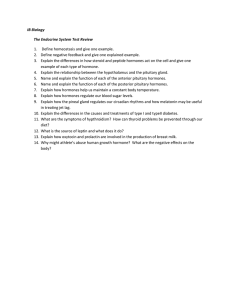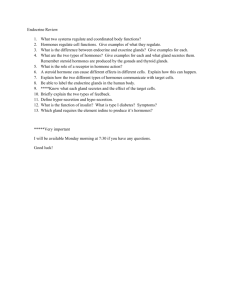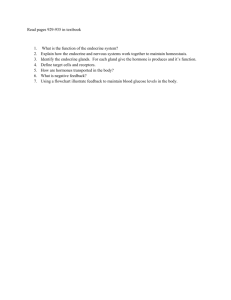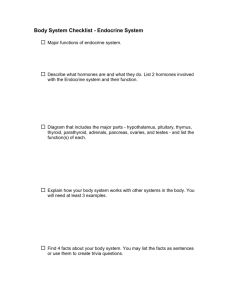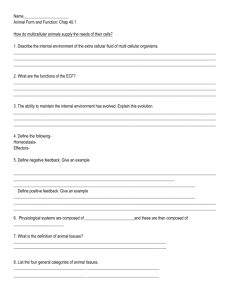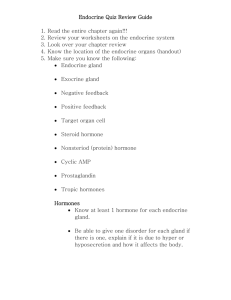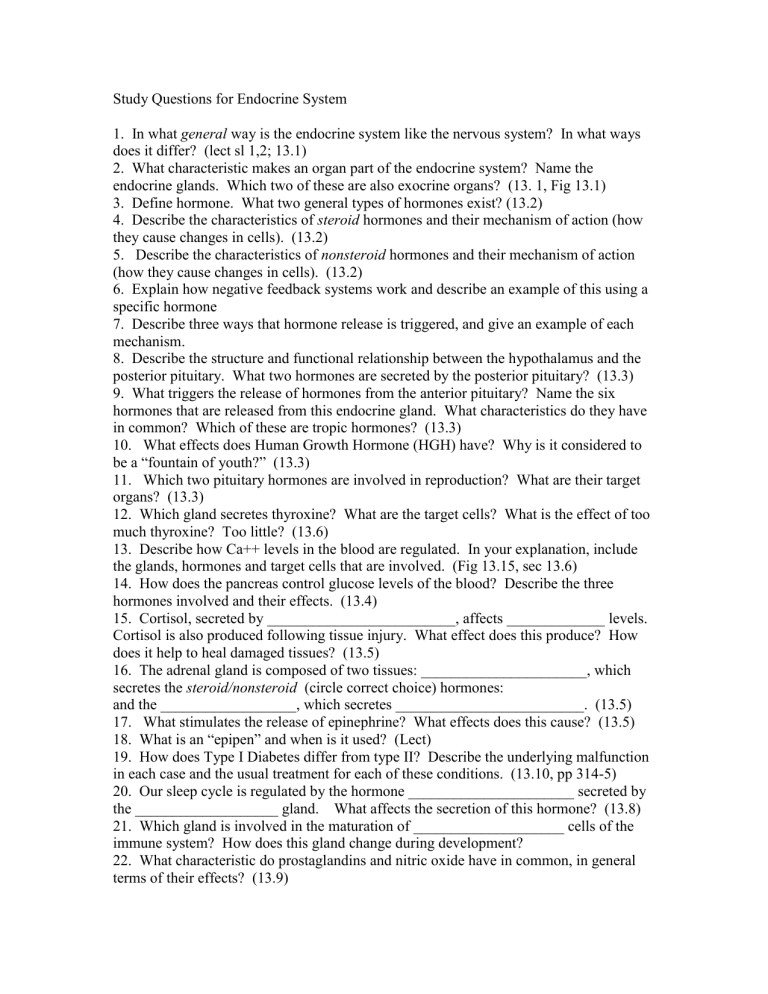
Study Questions for Endocrine System 1. In what general way is the endocrine system like the nervous system? In what ways does it differ? (lect sl 1,2; 13.1) 2. What characteristic makes an organ part of the endocrine system? Name the endocrine glands. Which two of these are also exocrine organs? (13. 1, Fig 13.1) 3. Define hormone. What two general types of hormones exist? (13.2) 4. Describe the characteristics of steroid hormones and their mechanism of action (how they cause changes in cells). (13.2) 5. Describe the characteristics of nonsteroid hormones and their mechanism of action (how they cause changes in cells). (13.2) 6. Explain how negative feedback systems work and describe an example of this using a specific hormone 7. Describe three ways that hormone release is triggered, and give an example of each mechanism. 8. Describe the structure and functional relationship between the hypothalamus and the posterior pituitary. What two hormones are secreted by the posterior pituitary? (13.3) 9. What triggers the release of hormones from the anterior pituitary? Name the six hormones that are released from this endocrine gland. What characteristics do they have in common? Which of these are tropic hormones? (13.3) 10. What effects does Human Growth Hormone (HGH) have? Why is it considered to be a “fountain of youth?” (13.3) 11. Which two pituitary hormones are involved in reproduction? What are their target organs? (13.3) 12. Which gland secretes thyroxine? What are the target cells? What is the effect of too much thyroxine? Too little? (13.6) 13. Describe how Ca++ levels in the blood are regulated. In your explanation, include the glands, hormones and target cells that are involved. (Fig 13.15, sec 13.6) 14. How does the pancreas control glucose levels of the blood? Describe the three hormones involved and their effects. (13.4) 15. Cortisol, secreted by _________________________, affects _____________ levels. Cortisol is also produced following tissue injury. What effect does this produce? How does it help to heal damaged tissues? (13.5) 16. The adrenal gland is composed of two tissues: ______________________, which secretes the steroid/nonsteroid (circle correct choice) hormones: and the __________________, which secretes _________________________. (13.5) 17. What stimulates the release of epinephrine? What effects does this cause? (13.5) 18. What is an “epipen” and when is it used? (Lect) 19. How does Type I Diabetes differ from type II? Describe the underlying malfunction in each case and the usual treatment for each of these conditions. (13.10, pp 314-5) 20. Our sleep cycle is regulated by the hormone ______________________ secreted by the ___________________ gland. What affects the secretion of this hormone? (13.8) 21. Which gland is involved in the maturation of ____________________ cells of the immune system? How does this gland change during development? 22. What characteristic do prostaglandins and nitric oxide have in common, in general terms of their effects? (13.9)


